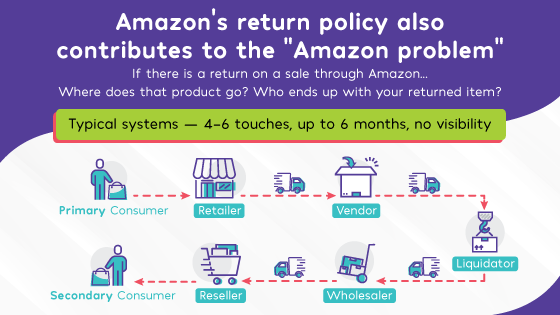Whether you have not started selling on Amazon, or a seasoned veteran, you have probably come across the issue of unauthorized third-party resellers peddling your product on the platform. Often brand owners wonder, “how is this possible?” The question is amplified if they have no authorized resellers, or they don’t yet sell their products on Amazon! Today, we will review some of the ways sellers obtain your products and profit from them on Amazon.
Are Your Customers Betraying You?
Intentional or not, your customers may betray you. Rogue sellers deliberately purchase your product and then sell it on Amazon. These sellers manage fake business storefront(s) on Amazon’s marketplace, and they sell your products as their own.
Your products can also be sold without a conscious effort to undermine your business. For example, if a brand sells its products to an authorized reseller (i.e., a doctor’s office) and someone who works in that business (i.e., the office manager) believes that your product will sell well on Amazon, they may sell it themselves, unaware of any legal or distribution agreement issues.
What About Your Distributors?
Sometimes your distributors may betray you as well. They may sell your products to online retailers outside of your distribution agreement. It’s underhanded, but it happens. How can they get away with this? Sometimes the distributor is honest and intends to do the right thing, but has an inside sales representative that ignores the rules to keep their commissions flowing.
Your Products May Be Stolen
We also can’t forget about the most common occurrence, theft. The top two scenarios are retail theft – someone went into a store and stole your product – or freight theft – where entire cases of products are taken from the distributor or truck. In both cases, the guilty parties sell your product for a quick profit on Amazon.
Profitable Arbitrage Opportunities
Retail arbitrage occurs when retailers accidentally misprice your brand. As an example, a large retailer unintentionally sets a $30 product for only $3 in their system. A savvy reseller may come upon this mishap and purchase the mispriced products, and then resell the product on Amazon at the proper price, making a significant profit.
Marketplace arbitrage occurs when an online seller on a competing marketplace, such as eBay, sells your product for $20 when it retails for $30. Other sellers purchase these products from one market and then sell them for the correct price on Amazon, reaping a nice profit.
Liquidation Nation
Sellers may acquire your product through liquidators or liquidation sales. When companies have returned items that they cannot resell in their store (often due to their condition), they often get rid of them by selling to liquidators at a fraction of the retail price. It is possible that these liquidators, or the people who purchase from the liquidators, then turn around to sell the products on Amazon. This brings up another important issue that brands face in the marketplace: Resellers selling faulty or outdated products that can hurt a brand’s reputation. This same thing can happen when Amazon unloads returned products through a liquidation process, as shown by the graphic below.
Brand Protection Solution
Unfortunately, disreputable resellers exist. To combat this, Amazzia has a large Brand Protection team whose sole focus is to ensure that unauthorized resellers will be unsuccessful in their endeavors. Our team works to remove resellers from through Amazon’s guidelines and ensure that you and your authorized sellers are the only people profiting from your hard work.
Regardless of where unapproved resellers acquire your product, they cannot realize a financial reward if they are blocked from selling them on Amazon. By using Amazzia’s Brand Protection, you can be confident knowing that your products are protected, and your brand is profiting from every sale.




